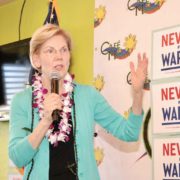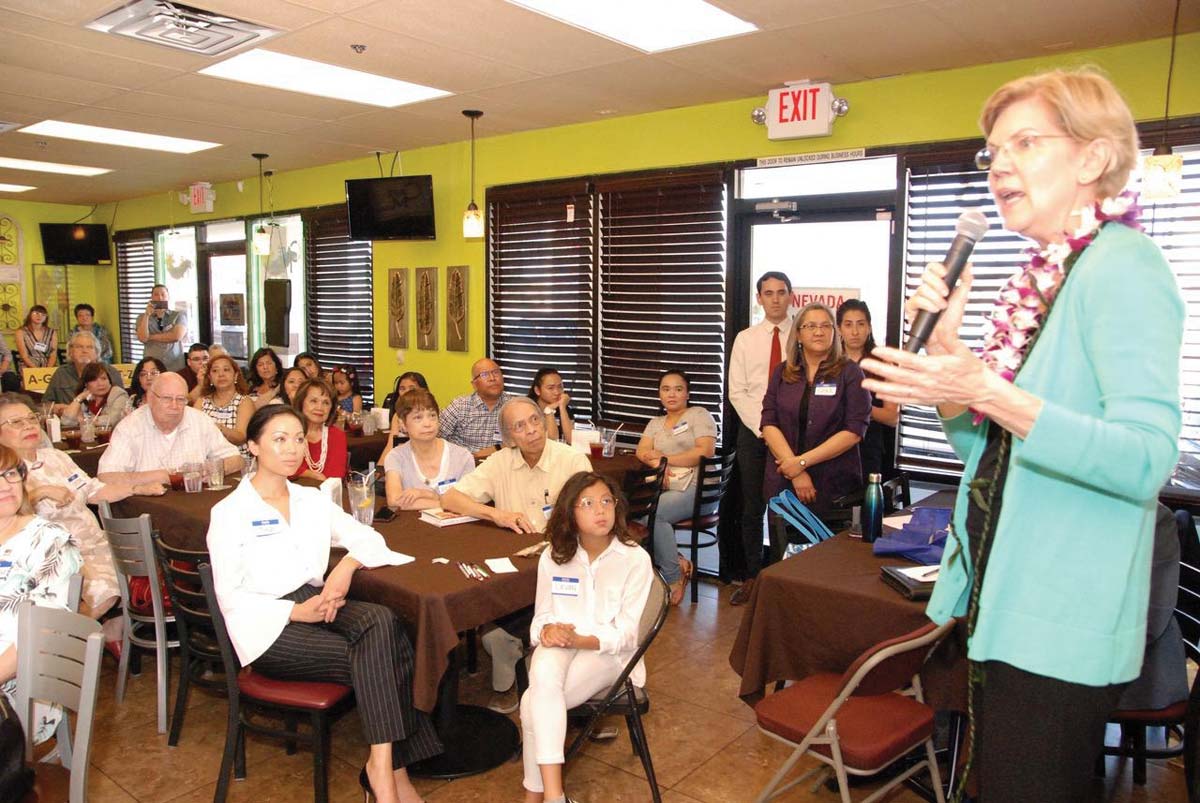
Warren’s campaign manager Roger Lau on the need for diverse presidential campaigns and why he thinks Warren is the candidate for AAPIs
AS early primary and caucus states begin to set the tone for the historic 2020 presidential election, an issue of great enormity lies in the ways in which the narrowing field of Democratic hopefuls plan to utilize inclusion and diversity within their campaigns and broad agendas.
For the first time in American electoral history, campaigns are beginning to hold these conversations within complex demographic intersections: the lack of linguistic diversity within bureaucratic processes, oversimplified data that shuts out individual cultures and their specific needs and the objective importance of an ethnically and racially diverse workplace.
Elizabeth Warren, the senior senator representing Massachusetts who’s positioned herself at the fore of progressive politics, made history last year by hiring the first Asian American campaign manager for a major presidential campaign.
Chinese American Roger Lau (who holds the distinction of first AAPI campaign manager along with Pakistani American Faiz Shakir, Bernie Sanders’ campaign manager) has worked with Warren since her senatorial campaign. His career as a political strategist and operative began in 2004 with the presidential campaign and 2008 senatorial campaign of John Kerry.
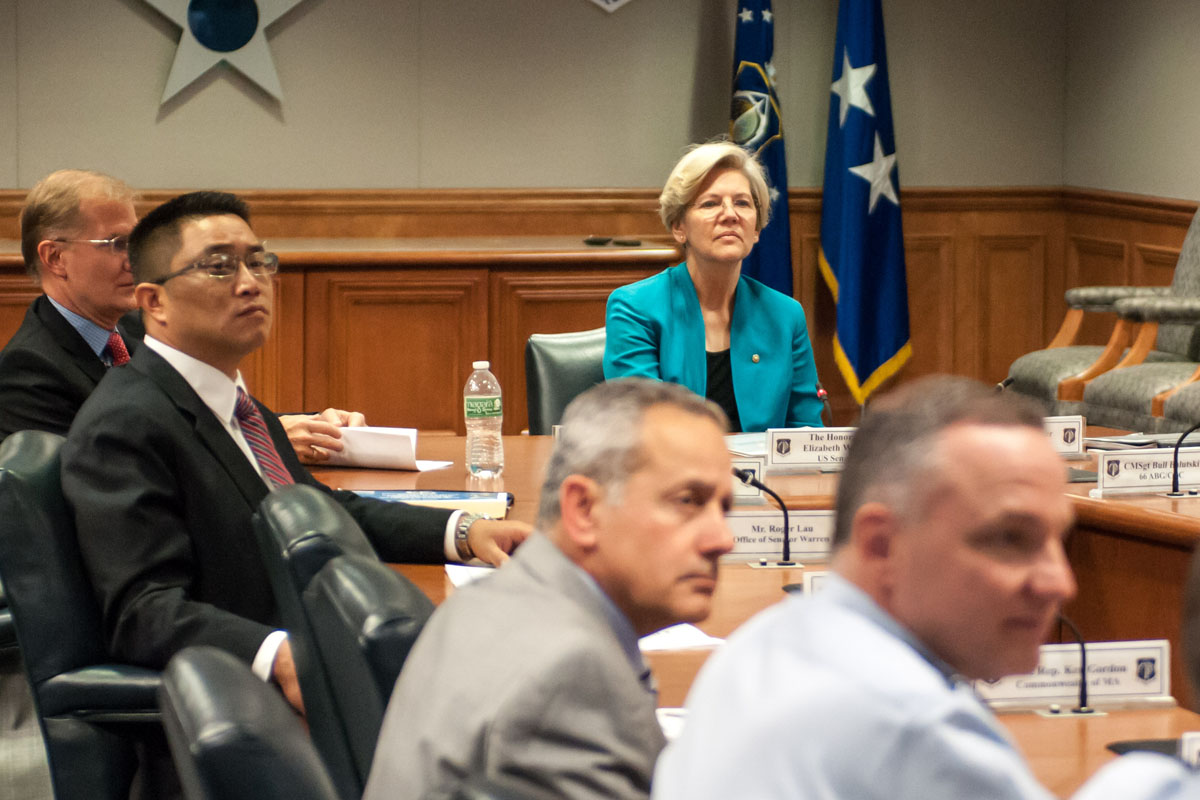
As a respected operative within the Democratic Party — who also provided Massachusetts-related policy help for Hillary Clinton — Lau has been an influential piece into ensuring that the AAPI community (the fastest-growing electorate in the nation) is included in the political conversation; and, the most basic way to get that conversation started is through representation.
“I think the cultural and linguistic barriers continue to be an issue for our communities here writ large and people aren’t always lucky to have a social support system when they get here and having that kind of representation in government is really important,” Lau shared with the Asian Journal in a recent phone interview.
Lau’s alignment with the Democratic Party likely began in his youth in the 80s and 90s in Woodside, Queens in New York City. The son of immigrants from Guangzhou, China, he saw the resilience of the Asian immigrant through his parents, who both worked two jobs to support the family of five.
But contrary to the “model minority myth” that purports all Asian Americans as academically excellent, Lau “got into a lot of trouble” as a teen, dropping out of Bronx High School of Science at 13 years old. But Lau credits the youth guidance counselors, social workers and mentors who helped him get on the right track.
Eventually, he got his GED and graduated from the University of Massachusetts Amherst with a degree in political science and a desire to ensure that all kids have access to the kind of social support he received as a truant 13-year-old.
“I wasn’t your typical Asian kid that was on track, and I think that it’s a lot harder for people now to get themselves out of these positions. Usually, when you get into trouble, the infrastructure of support is not there and going into college, I wanted to be able to help kids like me, kids who’ve messed up and gotten into trouble, and give them a chance for redemption,” Lau said.
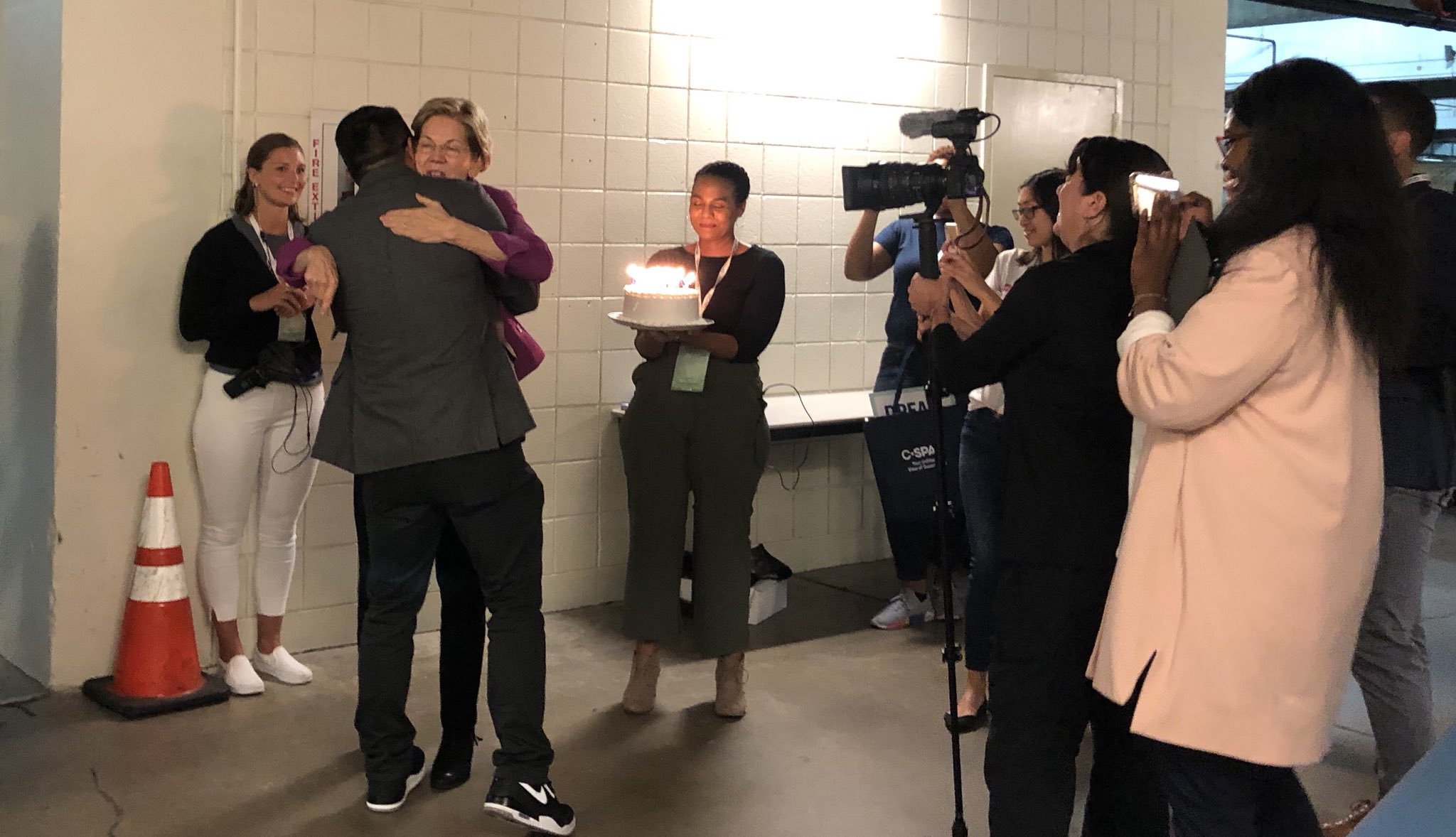
Warren and Lau first began talking about the importance of AAPI representation in government back when he was tapped for Warren’s senatorial campaign in 2011.
According to Lau, Warren’s presidential campaign has more than 100 AAPI staffers, including Mary Lou Akai-Ferguson, the national AAPI community engagement and organizing director for Warren for President who has led the campaign’s grassroots outreach efforts.
“As Elizabeth often likes to say, personnel is policy,” Akai-Ferguson said in a statement sent to the Asian Journal. “That’s why our team has been so intentional about representation by bringing key AAPI voices into our movement. Having an Asian American campaign manager like Roger, along with AAPI staff members at every level of our campaign — from senior leadership to organizers on the ground — makes a real difference when it comes to making policy that reflects the diversity and unique needs of our community.”
The inclusion of an AAPI force within Warren’s campaign manifested itself into a new proposal part of her broader call for “big structural change.”
Last week, Warren released the White House Task Force on Data Equity in an effort to “collect disaggregated data” from all government agencies and departments.
The issue of disaggregated data, the practice of separating figures and statistics and taking a granular approach to examine the specific needs of various communities, has been a main talking point among AAPIs but one that rarely gets a mention from mainstream politicians, much less a major presidential contender.
Warren’s sweeping AAPI agenda comprises insight and research from activists, organizers, community leaders and policy experts on broad issues ranging from affordable housing, immigration, income inequality, health care and affordable public education.
“Data equity is a civil rights issue. And from the wage gap to the 2020 Census, communities that have been perpetually erased are calling to be counted and have their experiences made visible,” Warren wrote in the agenda released on February 13.
“I believe that you measure what you care about — and I care about building a government that works for everyone in the diverse AAPI community,” she added.
The senator’s inclusive approach in her short but eventful career as a policymaker has made her a standard-bearer for a particular brand of accessible progressive politics that appeals to a wide range of liberal-/leftist-leaning Americans.
Since announcing her campaign in early 2019, Warren has enjoyed a huge jump in her political profile and more attention paid to her approach to policy. Initially, Warren was a clear favorite among Democratic voters, but as the primaries began, she dipped in the polls. RealClearPolitics has her in 4th place, as of Wednesday, February 19, and she earned third and fourth place in the Iowa caucus and New Hampshire primary, respectively.
Nevertheless, Warren boasts a strong list of endorsers from the AAPI community that includes mayors councilmembers, state assemblymembers and senators and public figures like actress Constance Wu and award-winning writers Celeste Ng and Jenny Han.
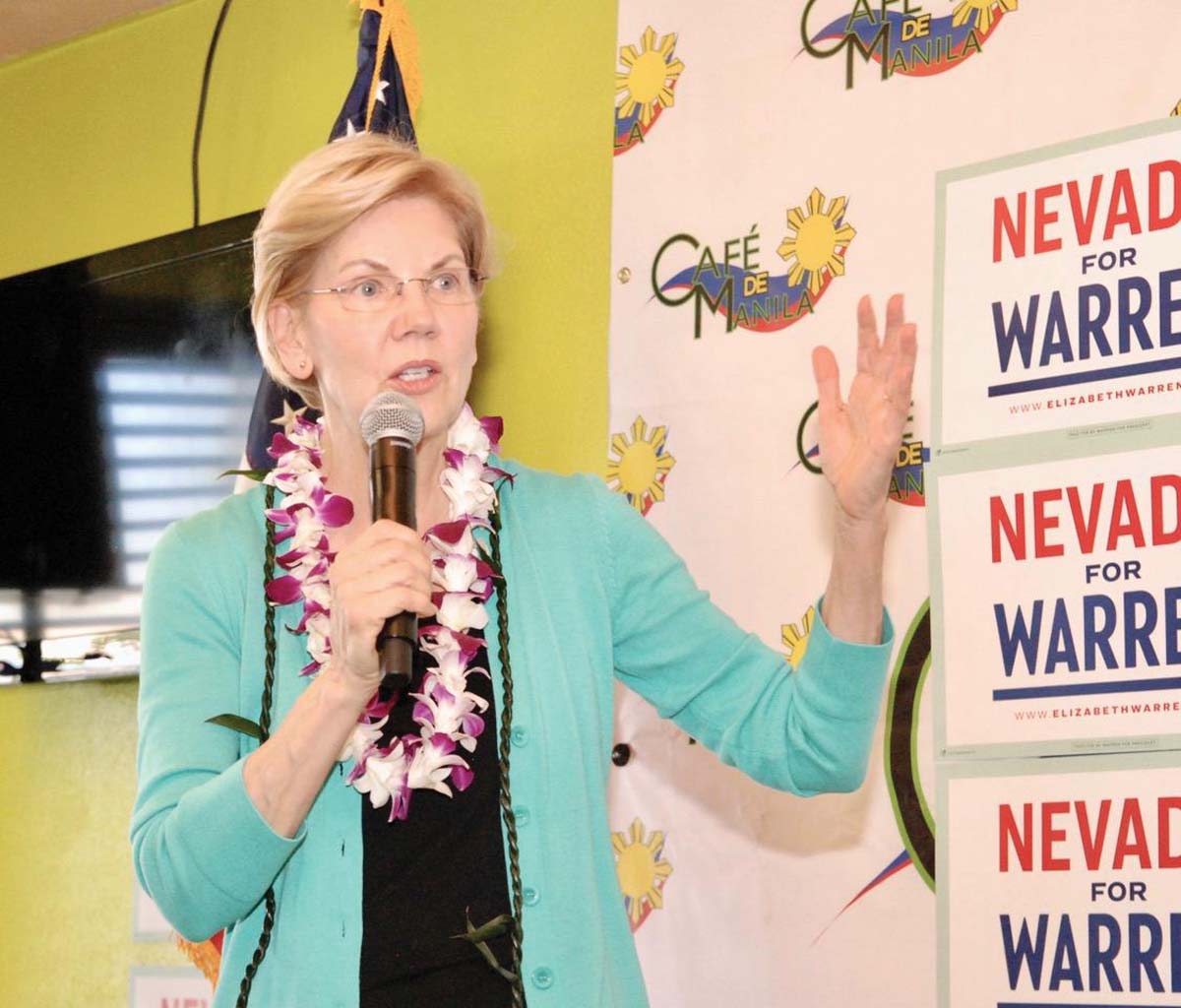
The official AAPI engagement group for Warren’s campaign, AAPIs with Warren, comprises of more than 150 AAPI leaders who banded together to endorse Warren for president, including prominent Filipino Americans like singer AJ Rafael, author Gina Apostol, documentary filmmaker Ramona Diaz, and psychology professor Kevin Nadal.
“This is why we passionately support Senator Elizabeth Warren for President: because she recognizes the gravity of the threats we face today to our democracy and security — and the major structural changes that are required to confront these issues. And we hope that you will join us in supporting her campaign,” the group wrote in a Medium post in January.


